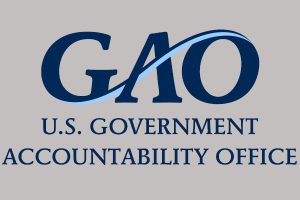GAO Report: FOSTA-SESTA Isn’t Being Used by DOJ
 WASHINGTON — The U.S. Government Accountability Office (GAO), the federal government’s congressional watchdog agency, released a report on June 21 measuring the impact of the benchmark FOSTA-SESTA anti-sex trafficking legislation that former President Donald Trump signed into law in 2018.
WASHINGTON — The U.S. Government Accountability Office (GAO), the federal government’s congressional watchdog agency, released a report on June 21 measuring the impact of the benchmark FOSTA-SESTA anti-sex trafficking legislation that former President Donald Trump signed into law in 2018.
The passage of the law followed a major lobbying fight between anti-sex trafficking and anti-porn groups and technology industry entities, because the law represented a partial rollback on the third-party liability shield under Section 230 of the Communications Decency Act of 1996.
Despite the law being a total middle finger for the rights of sex workers and adult performers, it turns out that federal prosecutors have barely utilized the law since its passage.
While the GAO report doesn’t comment on the harms of FOSTA-SESTA, the report does indicate that Department of Justice officials have not used the law “because the law is relatively new and prosecutors have had success using other criminal statutes.” The report also notes that federal prosecutors have “struggled more broadly to investigate and prosecute platform companies, some of which have moved overseas since the law’s passage,” reports Politico.
“From 2014 through 2020, the Department of Justice (DOJ) brought at least 11 criminal cases against those who control platforms in this market, including three cases against those who control backpage.com,” the GAO notes in the report. “Criminal restitution has not been sought and civil damages have not been awarded under section 3 of FOSTA. In June 2020, DOJ brought one case under the criminal provision established by section 3 of FOSTA for aggravated violations involving the promotion of prostitution of five or more people or acting in reckless disregard of sex trafficking. As of March 2021, restitution had not been sought or awarded.”
“According to DOJ officials, prosecutors have not brought more cases with charges under section 3 of FOSTA because the law is relatively new and prosecutors have had success using other criminal statutes,” the GAO adds. “Finally, in November 2020 one individual sought civil damages under a number of constitutional and statutory provisions, including section 3 of FOSTA. However, in March 2021, the court dismissed the case without awarding damages after it had granted [the] defendants’ motions to dismiss.”
The report also observes that the first successful prosecution of an online platform operator for facilitation of prostitution took place prior to FOSTA-SESTA being signed into law.
“In June 2014, federal prosecutors initiated a case against the owner of myredbook.com,” the GAO observes. “According to the Department of Justice, this case resulted in the first federal conviction of an online platform operator for facilitation of prostitution. Since 2014, federal prosecutors have brought at least 10 other cases against those who control platforms in the online commercial sex market.”
Of the 10 other cases the GAO references, only three involved charges of sex trafficking, while five involved money laundering charges and the government alleged racketeering in seven of those cases.
Since the law isn’t being used like it was intended to, it also begs the question of whether FOSTA-SESTA was ever an effective law in the first place. Democratic lawmakers in Congress have questioned the law, with some even advocating for it to be entirely scrapped because of the damages done to sex workers and legitimate adult content creators.












